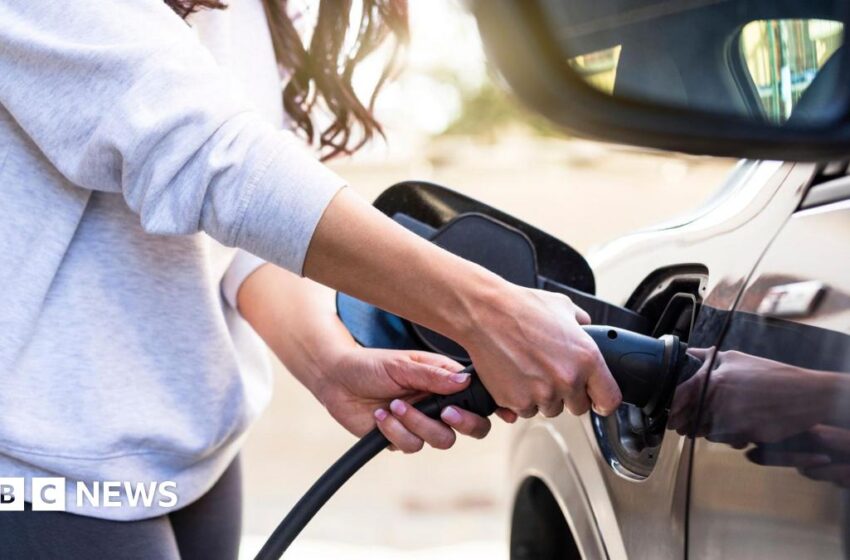No products in the cart.

[ad_1]
The government said the consultation would be part of a “wider push” to make it easier and cheaper to charge electric cars.
There are now more than 72,000 public charging points in the UK, with another 100,000 planned by local authorities across England, according to the government.
The lack of sufficient charging infrastructure, particularly in rural areas and homes without private parking spaces poses an issue as well – one that analysts will take several years to resolve.
The cost of EVs remains a barrier to people switching as even the most affordable models are still pricier than their petrol or diesel counterparts.
The government said EVs made up one in four cars sold in the UK. It said industry data put 1 in 3 used electric cars at under £20,000.
Edmund King, president of the AA, said drivers have been “hesitant about the transition but not hostile” but the consultation would bring more clarity and certainty.
Mike Hawes, chief executive of the SMMT, said it was “imperative we get an urgent resolution” to adapt the mandate to help car makers achieve it along with “bold incentives” to get drivers to buy electric vehicles.
The consultation proposes updates to the Zero Emission Vehicle (Zev) mandate, which sets out the percentage of new zero emission cars and vans that manufacturers will be required to sell each year up to 2030.
In 2024, EVs must make up 22% of a carmaker’s car sales, and 10% of van sales. This target is set to rise. Firms failing to meet these targets face a £15,000 fine per sale.
Companies can avoid fines by buying “credits” from firms that have exceeded their quotas for electric car sales. They can also “borrow” allowances from future years.
The Energy and Climate Intelligence Unit (ECIU) think tank said target required to be achieved by each manufacturer was due to be reached as an average across the industry because these credits would be taken into account.
Colin Walker, transport lead at the ECIU added: “Certain manufacturers are proving themselves not just equal but better to the task they’ve been set. The likes of BMW, Mercedes, Hyundai, for example. They are all selling more EV’s than they need to. It’s proof it can be done and that more ambitious targets in the years ahead can be hit.”
[ad_2]
Source link















